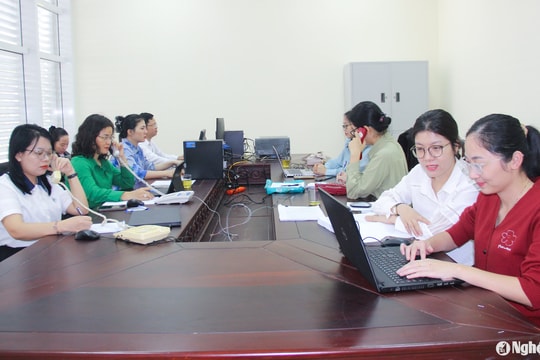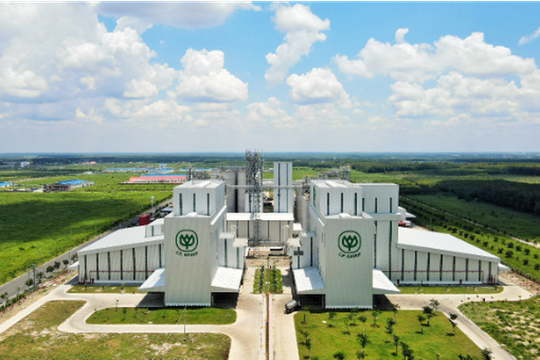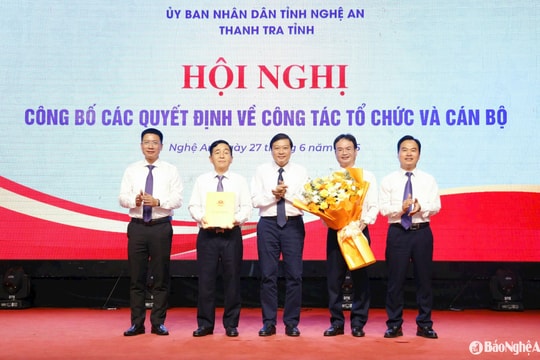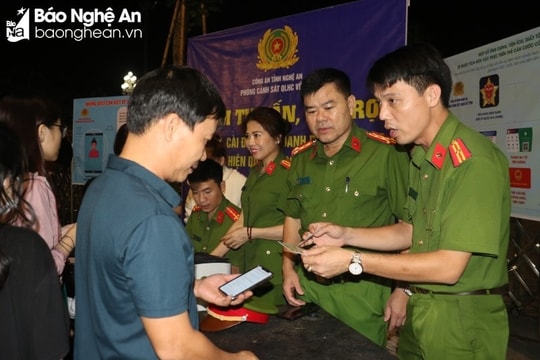What obstacles make people "afraid" to denounce and expose corruption?
The main obstacle that makes people reluctant to report is the fear of being persecuted and retaliated against. Therefore, the draft Law on Denunciation (amended) needs to clearly stipulate which agency will protect the whistleblower.
People are "afraid" to report for fear of being persecuted and retaliated against.
Regarding the current situation where people do not know which agency has the authority to resolve denunciations, at the Conference on providing comments on the draft Law on Denunciations (amended) organized by the Vietnam Fatherland Front on March 29, Mr. Do Duy Thuong, Deputy Head of the Advisory Council for Democracy and Law of the Central Committee of the Vietnam Fatherland Front, said that the draft law needs to expand the scope of regulation and clearly stipulate the agency receiving denunciations to create conditions for people to exercise their right to denounce.
According to Mr. Thuong, the main obstacle that makes people reluctant to report is the fear of being persecuted and retaliated. Therefore, the draft Law on Denunciation (amended) needs to clearly stipulate which agency is in charge of receiving denunciations. In addition, it is also necessary to clearly stipulate which agency protects the whistleblower and what form of protection is provided so that people can read the Law and understand and go to the right address to exercise their right to denounce.
|
| Conference to contribute ideas to the draft Law on Denunciation (amended) organized by the Vietnam Fatherland Front |
“The protected person is not only the whistleblower but also the whistleblower’s relatives such as the whistleblower’s wife, husband, biological father, biological mother, adoptive father, adoptive mother, biological and adopted children. The protection of whistleblowers needs to focus on measures to protect information, protect work positions, jobs, protect life, health, protect property, honor, reputation… to encourage people to exercise their right to denounce”- Mr. Nghi suggested.
Clearly define the responsibility for handling complaints to avoid shirking and cover-up.
According to Associate Professor, Dr. Quach Si Hung, Institute of State and Law, Ho Chi Minh National Academy of Politics, in addition to having a mechanism to protect whistleblowers of corruption and negativity, it is necessary to clearly define the responsibility for handling denunciations to avoid shifting the blame, cover-up as well as protect the confidentiality of whistleblowers.
“The amended Law on Denunciation needs to specify the agencies that receive denunciations. These agencies must publicize their addresses and phone numbers so that people can exercise their right to denounce,” Mr. Hung proposed.
It is expected that the Law on Denunciation (amended) will be submitted to the National Assembly for approval at the 5th session in May 2018.
Expressing concerns about the removal of the statute of limitations for legal violations to report and resolve denunciations, lawyer Nguyen Van Chien, Vice President of the Vietnam Bar Federation, said that the drafting agency needs to study this provision to be consistent with the statute of limitations of other relevant laws to avoid taking advantage of the non-statute of limitations in the Law to report, leading to affecting the reputation of the accused when the statute of limitations has expired, as well as creating responsibility, affecting the time and effort of the agency or organization handling the denunciation.Vice President of the Central Committee of the Vietnam Fatherland Front Ngo Sach Thuc suggested that the drafting agency should absorb new and progressive points to clarify the scope of regulation, purpose, principles, and mechanism for receiving denunciations. In particular, it is necessary to clarify the forms of denunciation; the statute of limitations for handling denunciations; the mechanism for protecting whistleblowers; the responsibilities of competent agencies, organizations, and individuals in receiving and handling denunciations; the coordination between agencies, including the Vietnam Fatherland Front Committees at all levels, socio-political organizations in disseminating the law on denunciations, supervising the handling of the law on denunciations, and organizing mediation at the grassroots level.
According to the Standing Committee of the Vietnam Fatherland Front Central Committee, this agency will collect and send to the drafting agency and relevant agencies to absorb, revise and perfect the draft Law to meet the requirements of institutionalizing the Party's policies and resolutions on strengthening and improving the effectiveness of the fight against corruption, handling complaints and denunciations, ensuring the concretization of new provisions of the Constitution on human rights and basic rights of citizens, ensuring feasibility, consistency and synchronization with the legal system, overcoming limitations and shortcomings in the current Law on Denunciation./.

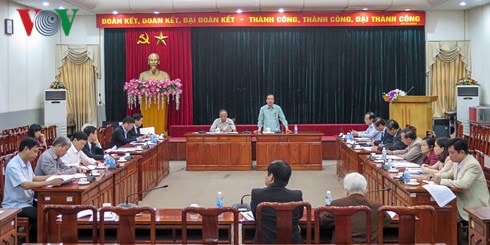
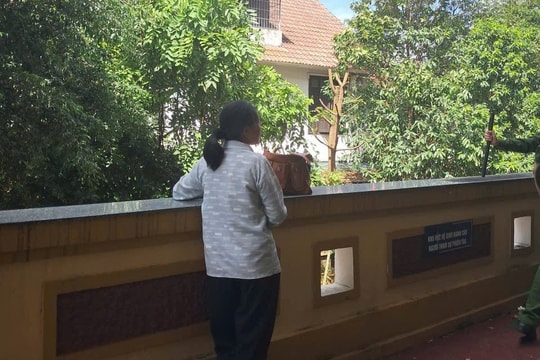
.jpg)
